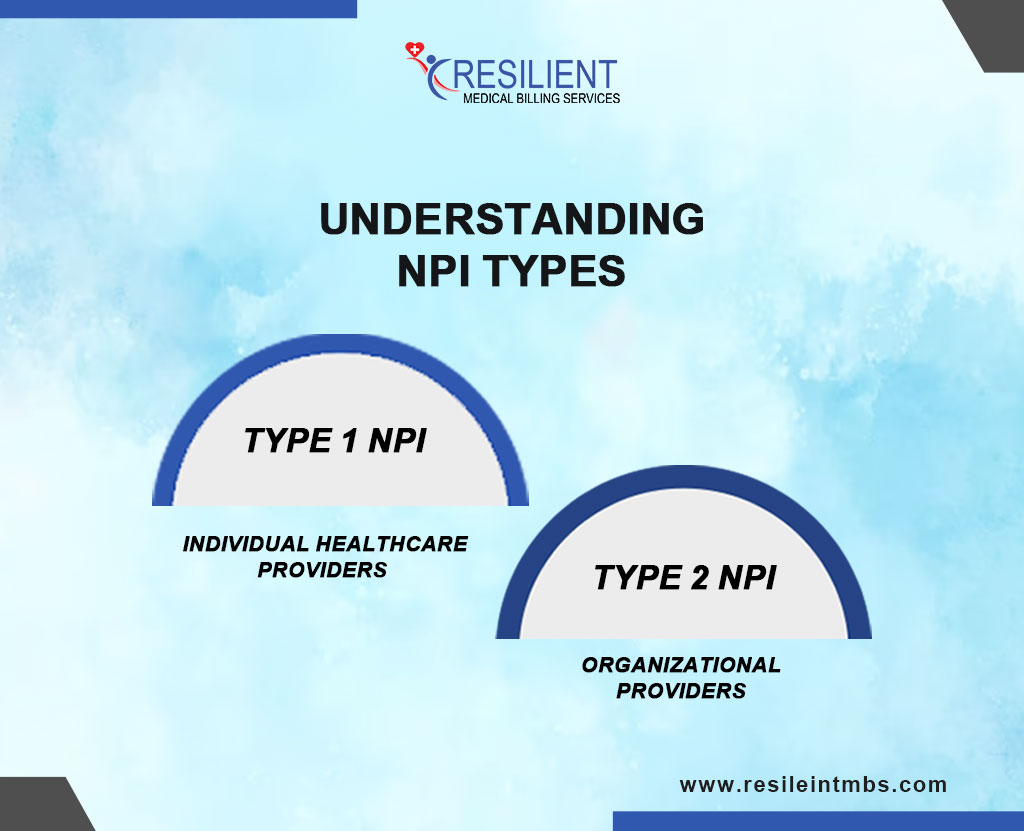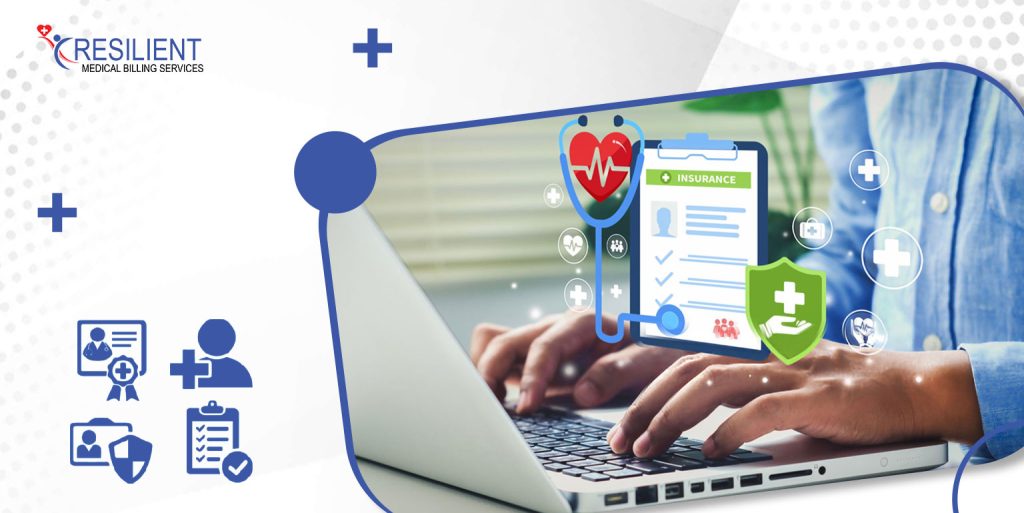Getting paid correctly and following the rules in today’s confusing medical system starts with one important thing: having the right provider ID. NPI stands for “National Provider Identifier.” It is a 10 number issued by CMS that each healthcare provider must have.
But did you know that NPIs come in two different types? If you know the difference between an individual NPI and a group NPI, you can avoid billing problems, keep your claims from being turned down, and make the process of getting insurance companies to recognize your business easier. Let’s break it down.
What Is an NPI?
The National Provider Identifier Number (NPI) is part of the Administrative Simplification provisions of the Health Insurance Portability and Accountability Act (HIPAA). As mandated by HIPAA, all covered healthcare providers, health plans, and healthcare clearinghouses must use NPIs in their administrative and financial transactions.
There are two types of NPI:
Type 1 NPI: Assigned to individual healthcare providers, such as physicians, dentists, nurse practitioners, and therapists.
Type 2 NPI: Assigned to healthcare organizations, such as hospitals, group practices, laboratories, and nursing homes.
Each NPI remains with the provider or organization regardless of location changes, job shifts, or updates in licensure, making it a permanent identifier.
Purpose and Role in Medical Billing and Credentialing
A single, unified identifier called the National Provider Identifier (NPI) replaces various provider IDs and speeds up electronic healthcare transactions.
In medical billing, the NPI:
- Identifies rendering, referring, and billing providers on claims
- Reduces claim denials from incorrect or missing provider data
- Ensures timely reimbursement
In credentialing, the NPI helps insurers, Medicare, and Medicaid verify provider identity and qualifications, supporting directory accuracy and regulatory compliance.
Understanding NPI Types
The National Provider Identifier (NPI) is a unique number required by HIPAA for healthcare providers in the U.S. It is essential for billing, electronic transactions, and administrative efficiency.
There are two types: Type 1 (individual providers) and Type 2 (organizations). Understanding the difference ensures accurate identification and compliance.

Type 1 NPI – Individual Healthcare Providers
Type 1 NPIs are given to specific healthcare workers who care for patients directly. This includes licensed workers like dentists, doctors, chiropractors, and people who work alone. A Type 1 NPI is required for any healthcare provider working with patients on their own or as part of a larger group. No matter what job or where they live, the NPI goes with the person throughout their career.
NPI Number Registration Process
To obtain a Type 1 NPI, individual providers must apply through the National Plan and Provider Enumeration System (NPPES). The process involves visiting the NPPES website, creating an account, and completing an online application with personal, licensing, and contact information.
Once submitted electronically, the application typically results in the issuance of a unique 10-digit identifier, which can be used nationwide across all health plans.
Type 2 NPI – Organizational Providers
TType 2 NPIs are given to healthcare groups and entities that provide services through more than one person or facility and are legally recognized as such.
Some of these are nursing homes, hospitals, group practices, labs, and home health services. For billing and bookkeeping tasks, these kinds of businesses need to get a Type 2 NPI.
Additionally, different parts of a business, like an outpatient clinic or a certain department, may need their own Type 2 NPI if they do normal electronic transactions on their own.
Key Differences in Structure and Use
The primary distinction between Type 1 and Type 2 NPI lies in their assignment and application:
- Type 1 NPI is assigned to a person, and used to identify the individual rendering care.
- Type 2 NPI is assigned to a business or institution, used to identify the organizational entity as the billing provider.
While an individual provider will only ever have one Type 1 NPI, an organization may possess multiple Type 2 NPIs depending on its structure and the services it provides.
NPI Type 1 vs Type 2 – What’s the Main Difference?
The National Provider Identifier (NPI) is a unique 10-digit number assigned by the Centers for Medicare & Medicaid Services (CMS) to identify healthcare providers in the U.S. There are two types of NPIs: Type 1 (Individual) and Type 2 (Organizational). Type 1 NPIs are issued to individual healthcare providers such as physicians, nurses, and therapists.
These are used on claims to identify the individual rendering the service. In contrast, Type 2 NPIs are assigned to healthcare organizations or group practices like hospitals and clinics and are used to identify the billing entity.
Providers can have both a Type 1 and Type 2 NPI if they operate as both an individual and a business.
For solo practitioners, a Type 1 NPI is required, while a Type 2 NPI is not usually necessary unless they bill under an organizational name.
Understanding these distinctions is essential for accurate medical billing, credentialing, and compliance.
Why Understanding NPI Types Matters
For billing experts and healthcare providers, knowing the differences between NPI Type 1 and Type 2 is vital. Type 1 is for individual providers that is, doctors, therapists while Type 2 is for businesses, clinics, hospitals. Correct NPI guarantees CMS compliance, helps to avoid delays or rejections of claims, and enables appropriate provider enrollment and reimbursement.
Concluding Thoughts!
To stay on track and make the billing process run more smoothly, you need to correctly identify and register your NPI type. Whether you’re a sole practitioner or part of a healthcare group, knowing your NPI Type 1 or Type 2 will help you avoid mistakes that cost a lot of money and make dealing with payers easier.
Healthcare companies should check their NPI registration often using tools like a doctor NPI finder to make sure the information is correct and to improve operational and financial performance.
Get In Touch With Us Today!
Contact Resilient MBS right away if you need help with NPI registration, payment compliance, or credentials. Our team is here to help you stay on top of regulations and make your revenue cycle better.










